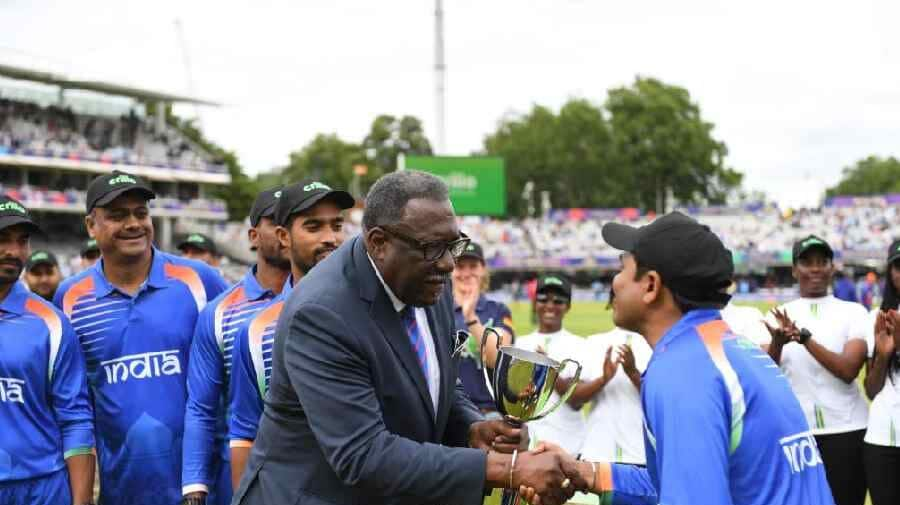
'Terrible!' Clive Lloyd criticizes proposed two-tier Test system
What's the story
Former West Indies cricket team captain, Clive Lloyd has strongly opposed the proposed two-tier Test system. The plan is being discussed by the International Cricket Council (ICC) in collaboration with the cricket boards of India, Australia, and England. According to The Age, Jay Shah, ICC's new chairman will meet Mike Baird of Cricket Australia and Richard Thompson from England later this month for further discussions.
Concerns raised
Lloyd warns of negative impact on emerging nations
Writing in the Trinidad & Tobago Guardian, Lloyd said the proposed system would be "terrible for all those countries who work so hard to get to Test match status." He feels this change could relegate these nations to a lower tier, restricting their growth and development in cricket. Lloyd also slammed Greg Barclay, the former ICC chairman, who suggested that the West Indies should disband and compete as individual countries due to financial constraints.
Funding disparity
Lloyd calls for equal funding distribution
Lloyd, one of cricket's most successful captains, believes the gap between top-tier nations and others is due to unequal funding from the ICC. Instead of considering disbanding sides, Lloyd suggested it would be more beneficial to provide them with equal funding. This could help improve their facilities and systems, ultimately leading to better cricket performance.
WTC criticism
Lloyd criticizes World Test Championship cycle
Lloyd also slammed the poorly organized WTC cycle. "It's not well organised as such because if I am in a Test team, I want to play cricket so I can qualify for that system," said Lloyd. "They (ICC and cricket boards) should sit down and have a system where it's not only T20 cricket. People still want to watch Test cricket and until we get that right, we will all be in this system."
Historical context
Two-tier Test system: A long-standing discussion
The idea of a two-tier Test system isn't new, with talks dating back to 2016. However, back then, the BCCI along with the cricket boards of Zimbabwe and Bangladesh had opposed the move. They had expressed concerns over potential revenue losses and fewer opportunities for smaller nations to compete against top teams. Despite these initial reservations, the conversation has evolved over time with changing circumstances in international cricket.